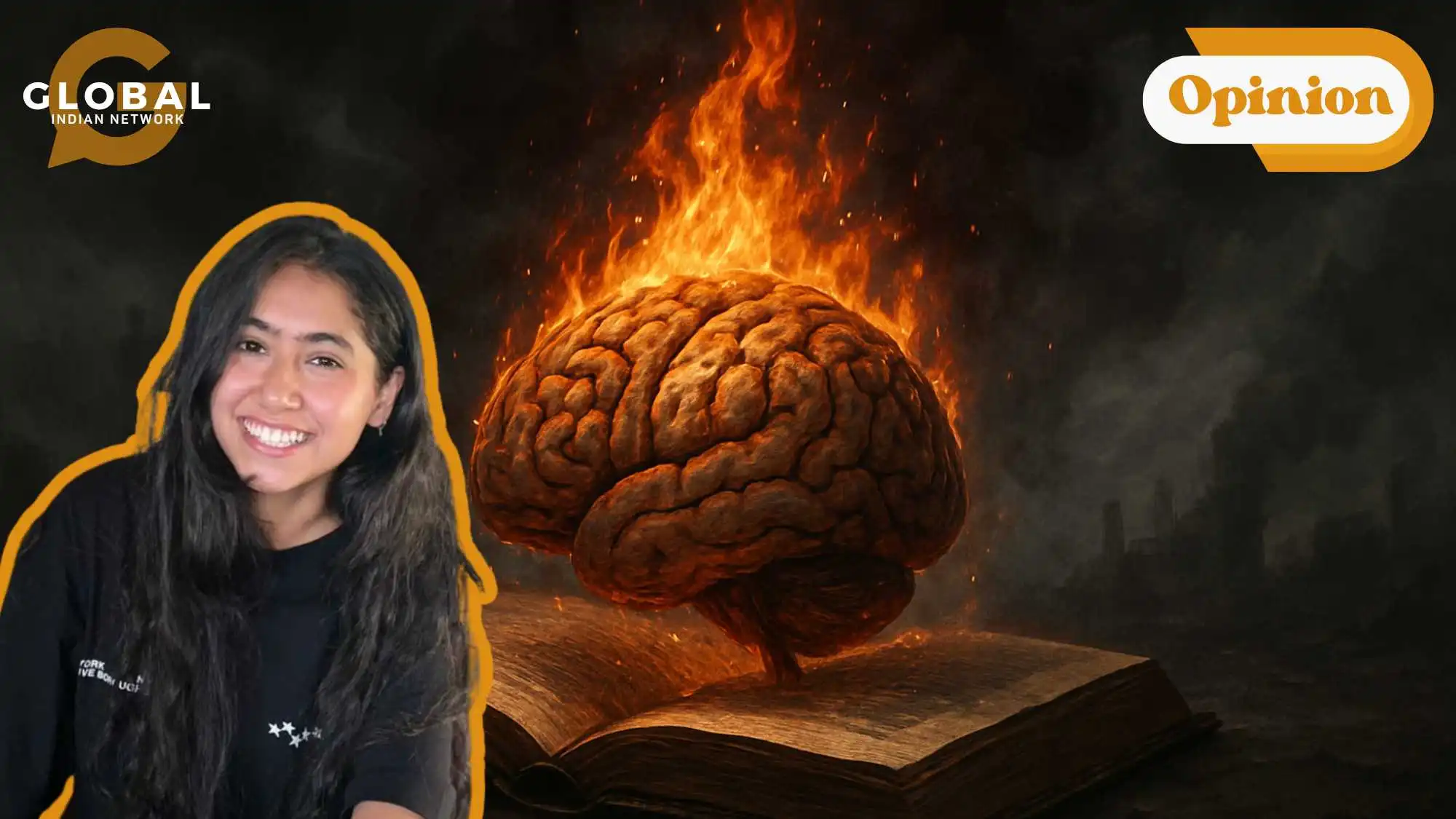Dystopian readings talk essentially about the hyperbole of corrupted societies. Its totalizing nature highlights extremist ideologies, which may be understood subjectively by some as utopia. It’s been a month since I read Fahrenheit 451 by Ray Bradbury, and I am not lying when I say that I was totally in awe of the plot. It explores themes of censorship, the power of knowledge, and the consequences of a society that prioritizes useless entertainment over critical thinking. Ray Bradbury wrote it during the early Cold War, a time of government control and fear of dissent, which is quite evident in the whole text.
The text consists of a dystopian world where the protagonist, Guy Montag, is a fireman, and quite ironically, here the firemen start the fires rather than putting them out. They are tasked with burning books and the homes of those who possess them to prevent individuals from accessing dangerous ideas. People are discouraged from asking questions or thinking independently, and those who do are seen as threats.
It is a world of ignorance and denial where no one really has any individuality; rather, everyone acts in the same way and if, by chance, they do, they are done away with. The book has a focal point when Montag meets Clarisse McClellan, a teenage girl and his new neighbor, who engages in such ‘outlandish behavior’ as walking instead of driving and having conversations with real people rather than virtual ones.
She asks him questions like ‘Is he happy?’ to which he very assertively answers at first, but then, when he returns home to find that his wife, Mildred, has taken a bottle full of sleeping pills, he realizes that maybe he’s not that happy after all. She is saved, but the next day she has no memory of her suicide attempt, and instead of talking about this, she suits herself and sits in the parlor, engrossed in its three full-walled TVs. Such is the routine of normal life in this dystopia.
One day, to Montag’s dismay, Mildred tells him that Clarisse has been killed. Anyone who did anything differently provided reason enough for the authorities to have their way with them, let alone their inquisitive nature and their unusual love for nature and people. She was the one who opened his eyes to the emptiness of his life with her innocently penetrating questions. Maybe he saw his own daughter in her if ever there’d be one.
As the story progresses, he grows disillusioned and he secretly starts reading books, which leads to conflict with his wife and his boss, Captain Beatty. Moreover, he seeks guidance from a former professor, Faber, who helps him understand literature’s value. Soon, he is exposed as a book reader and is forced to flee.

I was deeply moved by the whole story and couldn’t help but think, ‘What if something like this were to happen to us?’ Nobody has seen the future; maybe this is how we’ll meet our ends. Daily reading for pleasure has already plummeted 40% over the past 20 years; only god knows how soon it’s going to go down to 100%. Reduced critical thinking and higher dependency on various machines for the simplest of simple things is only going to increase manifold in the future.
We are all using social media, we’re consuming the same type of content, i.e., reels made on trending songs, we’re swallowing the same widespread gossip online, we’re watching the same trending shows, listening to the same trending songs, and hearing the same kind of news. This shared viewing is molding us into increasingly homogeneous beings, as varied opinions and distinct expressions are overshadowed by homogenized material that fills our screens.
The outcome is a suffocation of cultural experience, confining uniqueness and lessening the richness of public debate. This trend is concerning, as it threatens the loss of individual identity, creativity, death, and cultural diversity since we now more and more reflect the same tastes, views, and practices guided by algorithmically personalized content.
If we take into account the book ‘Time Machine’ by H.G. Wells, which narrates the story of a scientist who travels to the year 802,701 to find that the human species has evolved into two distinct ones: the Eloi, who are childlike and live on the surface, and the Morlocks, who are ape-like and live underground, preying on the Eloi. The clear division of class and labour strongly suggests that it could lead to humanity’s eventual division and self-destruction.
The reason for this species differentiation might lie with the unchecked class division, with the Morlocks forced into the dark, machine-filled underground, losing daylight vision but retaining intelligence, and the Eloi, enjoying a life of ease and luxury, degenerating physically and mentally due to the lack of challenges and reliance on the Morlocks. This again critiques the human nature of over-dependency and lack of critical thinking.
To sum it up, dystopia is not simply about a far-off nightmare, but a reflection of what we risk becoming if we surrender our curiosity, individuality, and critical thought. The challenge then falls on us to resist conformity, to celebrate diversity, and above all, to keep questioning before we forget how.

Let us know your thoughts. If you have burning thoughts or opinions to express, please feel free to reach out to us at larra@globalindiannetwork.com.









